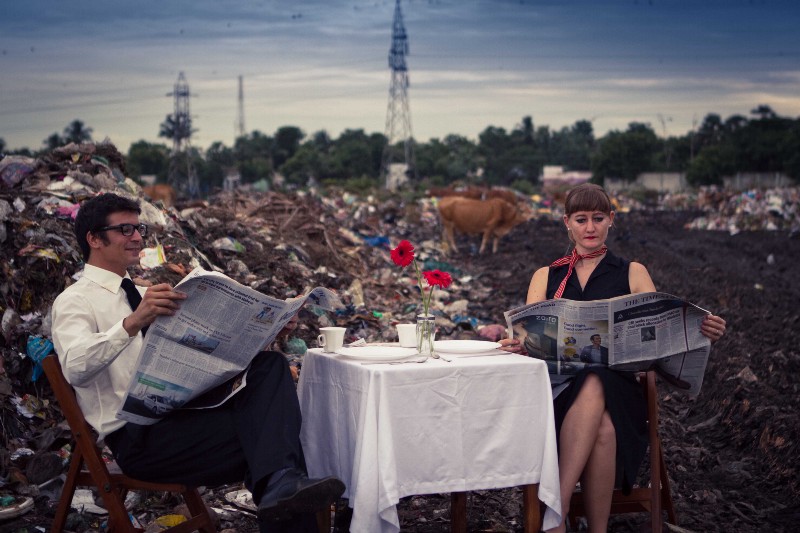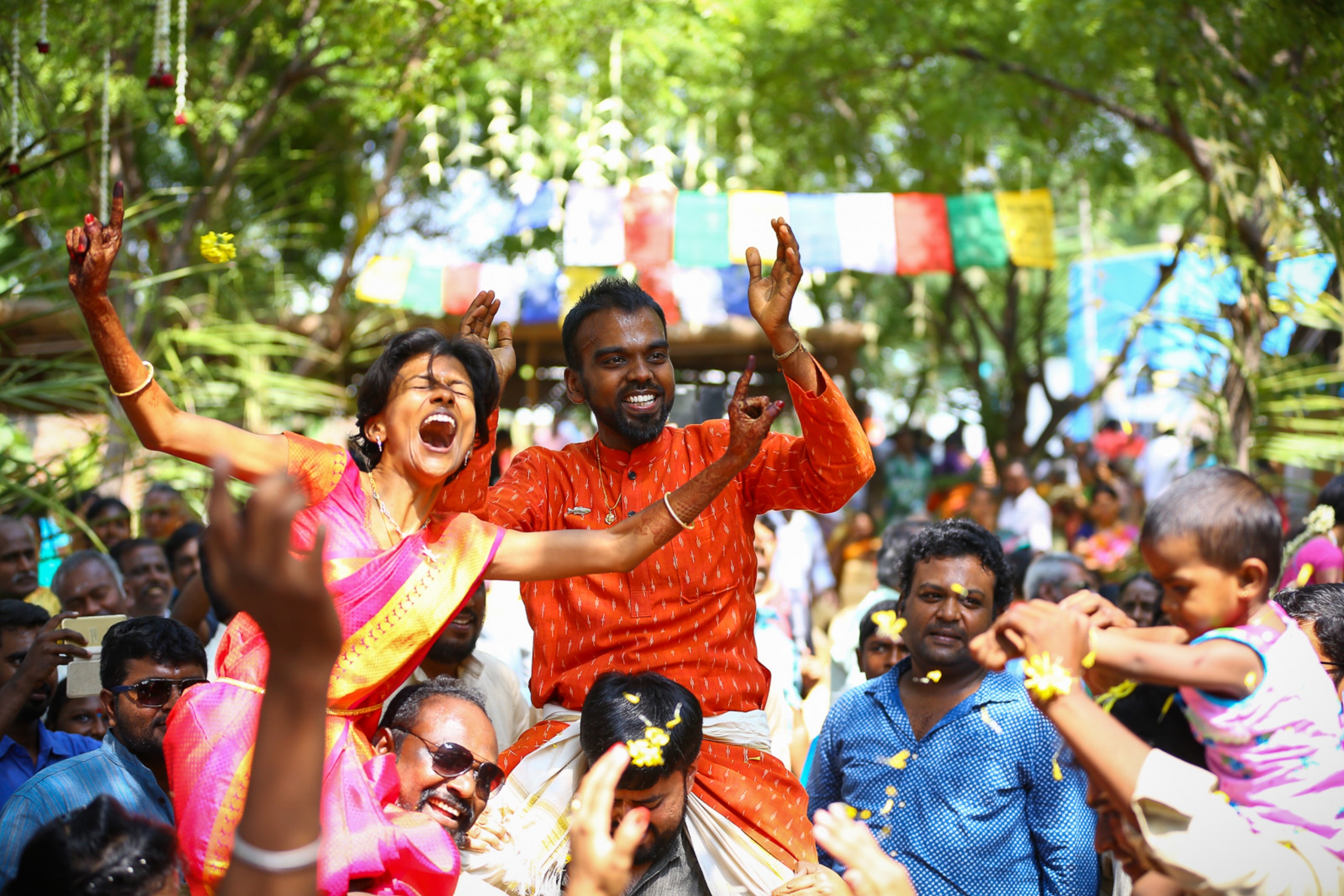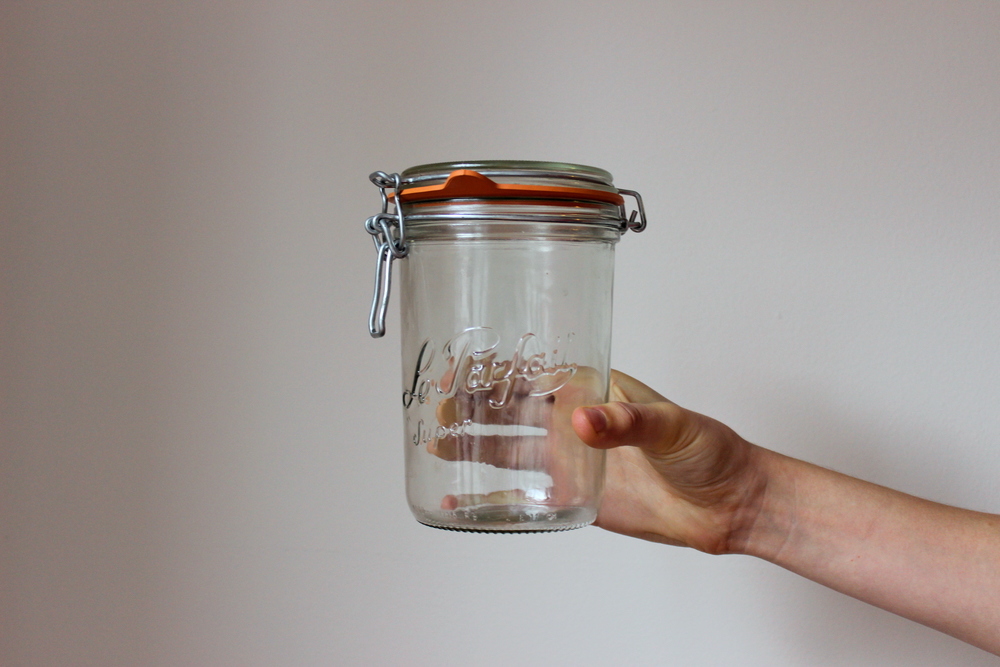Going Green, One Recycled Item At A Time

It was World Environment Day last week and it’s all very confusing – I am told being vegetarian is not so green anymore because it takes much more lettuce to make the same amount of calories than say bacon. I don’t want to start eating bacon, but that doesn’t mean I am not environmentally conscious.
Also, there is this whole straw movement and I did wonder at some point if I should buy a metallic straw, but the point is – I never did straws anyway; I always found them silly, and besides, I never had a real need for them; I never took to aerated drinks or drinking coloured liquids with fancy umbrellas. Or smoothies/cold coffees. Which is why I didn’t introduce them to the child either. We are both slurpers. So that’s one less thing we were polluting the environment with and one less thing to substitute.
As for bamboo toothbrushes, I will buy them when my local chemist or grocer sells them. Ordering them online — when a tiny toothbrush comes mummified with triple layered bubble wrap which is covered by another sheath of plastic somehow doesn’t make sense to me. The same way as buying organic dals (is the plastic it comes in also organic, I feel like asking). I would rather buy whatever dal my local grocer has – less wrapping. But every single thing you buy has plastic in it. Bigger the brand, more the layers of plastic. Everything you eat has touched plastic in some way, even if you made it from scratch. Isn’t that scary?
I wish I could say that I grow my own produce (or at least herbs and cherry tomatoes) in my backyard, but my father grabbed all dibs on green thumbs in the family, and is being sustainable on a piece of land in Belgaum, where he grows enough for the family and some friends.
I wish I could say that I have got rid of all plastic in my life (where does plastic go when you get rid of it?). But no matter how consistently and consciously I say no to plastic, it always makes an appearance insidiously. I try to control it from multiplying – but everything comes in plastic, even though it all sits in my cloth bag. I also try to buy large quantities of things – giant toothpastes, shampoos and big bags of rice and giant cans of oil – but at some stage, they all have to be replenished.
I wish I could say that I have switched to cycling and have stopped using my car, but I like air conditioning, and I also use it (albeit for a few hours) at home. If we had better weather, perhaps I would be more green, I tell myself.
It was a few months post baby that I calculated that his diaper consumption must have made a little hillock in a landfill somewhere. It was also when talks of climate change and global warming had reached their peak and there was a sense of alarm. If planet earth were the stock market, it would have crashed then. Since I already had made the baby, I couldn’t be one of those people who said that I wouldn’t have children because I want to save the planet. But I decided one thing – I will use less, want less and recycle more. I think I have stayed true to that resolution for the most part. I rarely shop (not for clothes, shoes, accessories, belts, bags – nothing). Everything I own is old or gifted or handed down. Even when I travel abroad, I end up going to thrift stores if at all. I buy most books for Re from second hand stores or garage sales. I often wish that one could recycle uniforms and books in schools too, but when I bring it up, other parents roll their eyes. I buy groceries because we have to eat; occasionally I buy treats for us, but there is always a mindfulness about it.
The worst thing for the environment is not straws – it’s greed and random consumption – to always want more, own more, dump more.
Re has grown up almost entirely on recycled clothes and shoes. Most of his toys are recycled, although birthdays go a little out of control with people buying random presents that sometimes I have to find ways to recycle. I have some mindful and generous friends who keep aside old clothes, shoes, toys, board games, puzzles and raincoats etc for Re. He doesn’t know that shopping is a luxury and till today, we haven’t actually gone shopping for things – except perhaps to a garage sale for books. This year on my birthday, I asked my friends not to buy me gifts, but give me something old, something they might have outgrown. It was beautiful, the way everyone responded. It is catching on.
The worst thing for the environment is not straws – it’s greed and random consumption – to always want more, own more, dump more.
A few weeks ago, my bhangarwala (local buyer of recyclable items including newspaper, bottles, cans, etc) asked me if I had old metal, since bottles had no value any more (the bottle recycling industry was shutting down). Since my mother will throw a fit if I give any of her copper bottomed heirlooms or iron griddles, I told him I had nothing. What about old toys or books of the child, he asked. I told him I donate it to the Don Bosco shelter for children and he laughed. “Ha ha, but they sell it to me, so you might as well, directly."
Now I give stuff to Goonj occasionally, but if there are things that I would like to set free (I don’t like the word donate), I make a list of people, call them, and ask them if they would like a pair of sneakers, a good swimming costume, books or floats or anything in good condition that my child or I may have outgrown physically or emotionally. It takes work, but it is infinitely more rewarding. Likewise, when I want something specific I ask for it. Like right now, I want a cycle. Anyone?
When I am tired of my stuff and want new stuff, I have no shame in asking people for hand-me-downs – ripped jeans, jackets, sarees, kurtas bags, embroidery books, knitting needles, yarn, whatnot. And people are always generous. I have a circle of friends I regularly do barters with and I will recycle anything and so will the child. This is the nice thing about making art. Everything finds a place.
I had a green childhood. We grew up green. Our school satchels were made of thick canvas/cloth and we had the same one for several years, frequently stitched up. My textbooks were kept aside for my siblings as they were in pristine condition. Tiffin boxes were always steel. We drank water from taps. For notebooks, we used brown paper, home-made labels and home-made gum paste. All our clothes were stitched at home and everything we ate was made at home. Except Parle G and sliced bread (which made a guest appearance once in a while). We walked to school, we played with friends, we hardly had toys. Once in a month, my father or the domestic help would go to Pai stores with a list and groceries would be brought home in a large jute bag. Tins had to be sent for oil, ghee. Everything else came in recycled brown paper bags. Rice was bought from farmers (my dad always knew someone) in large 20 kg gunny bags. The only plastic that came into the house was the milk packets of Warana milk that Amma started buying once she found that our milkman was giving us more water than milk from his canister. She would wash and dry each packet, making a sort of accordion like arrangement on the kitchen tiles where they stood next to each other. These were sold once a month for Rs 7 a kilo to the same guy who bought our old newspapers. Empty pages of our school notebooks were collected and bound into “rough books” in the school holidays. Uniforms had hems that if unfurled, would run up to our ankles (just in case we got my father’s height).
Fruit was not a staple, but we occasionally ate guavas, bananas, oranges, watermelon or anything seasonal. Once a year, a crate of mangoes arrived and we had no upper limit on how many we could have. It was real indulgence. We had no gadgets (except a Sumeet mixer and a Phillips radio). No one spoke about global warming. It wasn’t a thing.
I am saddened by the world we are leaving for our children. And each time I look in my garbage bin, I am saddened even more. Especially when I multiply that amount by 1.2 billion people.
Two years ago, my son was picking up litter in Landour and he said something that I will never forget. “Mamma, when humans don’t want things, they throw it on Mother Earth. It’s like they don’t want garbage in their house, but they are okay with throwing it on Mother Earth’s garden. At this rate, all that garbage will become another planet.”
May be it will.
Featured image: Watercolour by Vidya Gopal. (To order prints of the watercolour, get in touch with her on Instagram @spink_bottle.)
This article originally appeared here and was republished with permission.
Lalita is the author of The Whole Shebang - Sticky Bits of Being a Woman and the blogger behind the popular site Mommy Go Lightly where she writes about parenting, travel, books and food.





